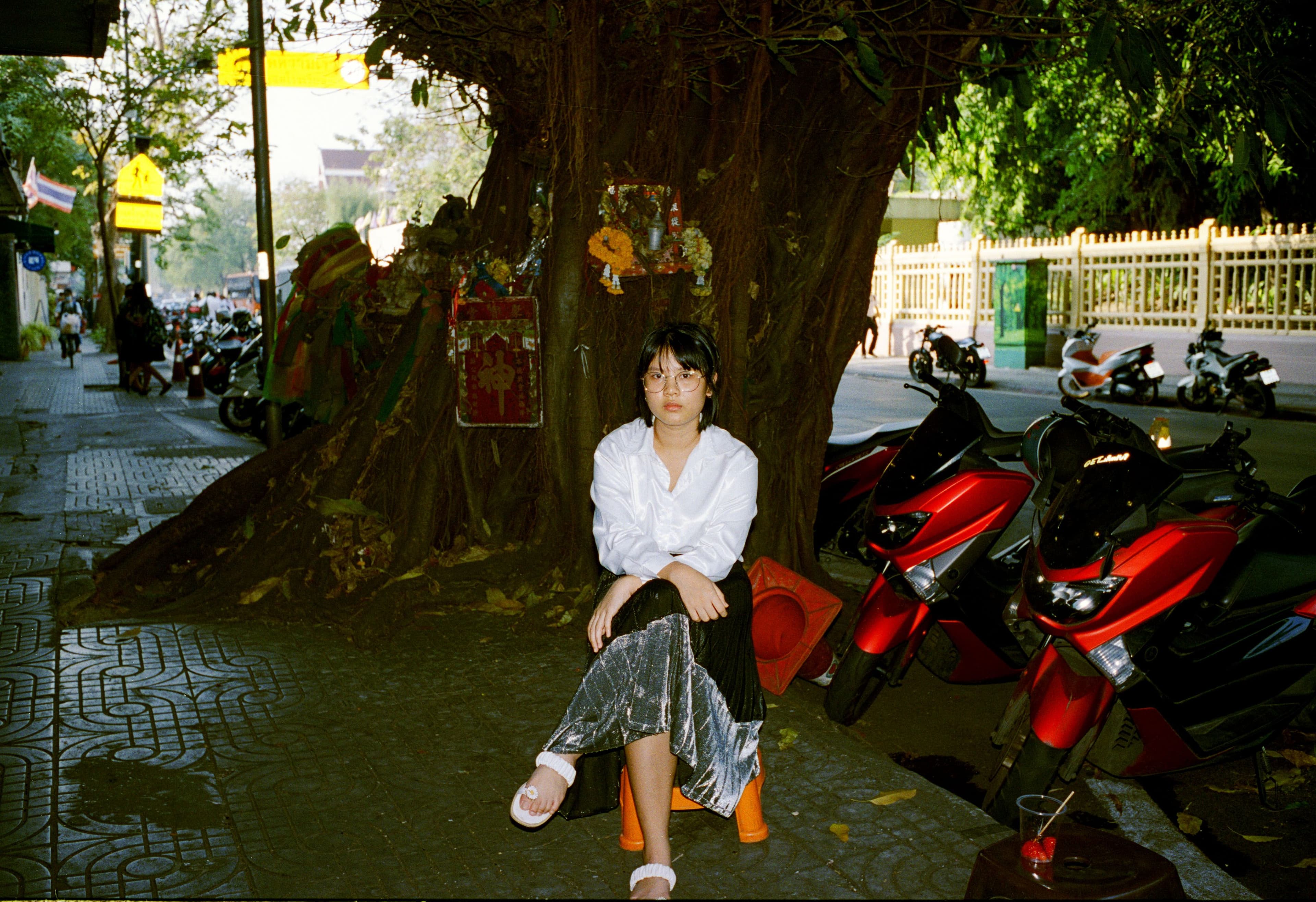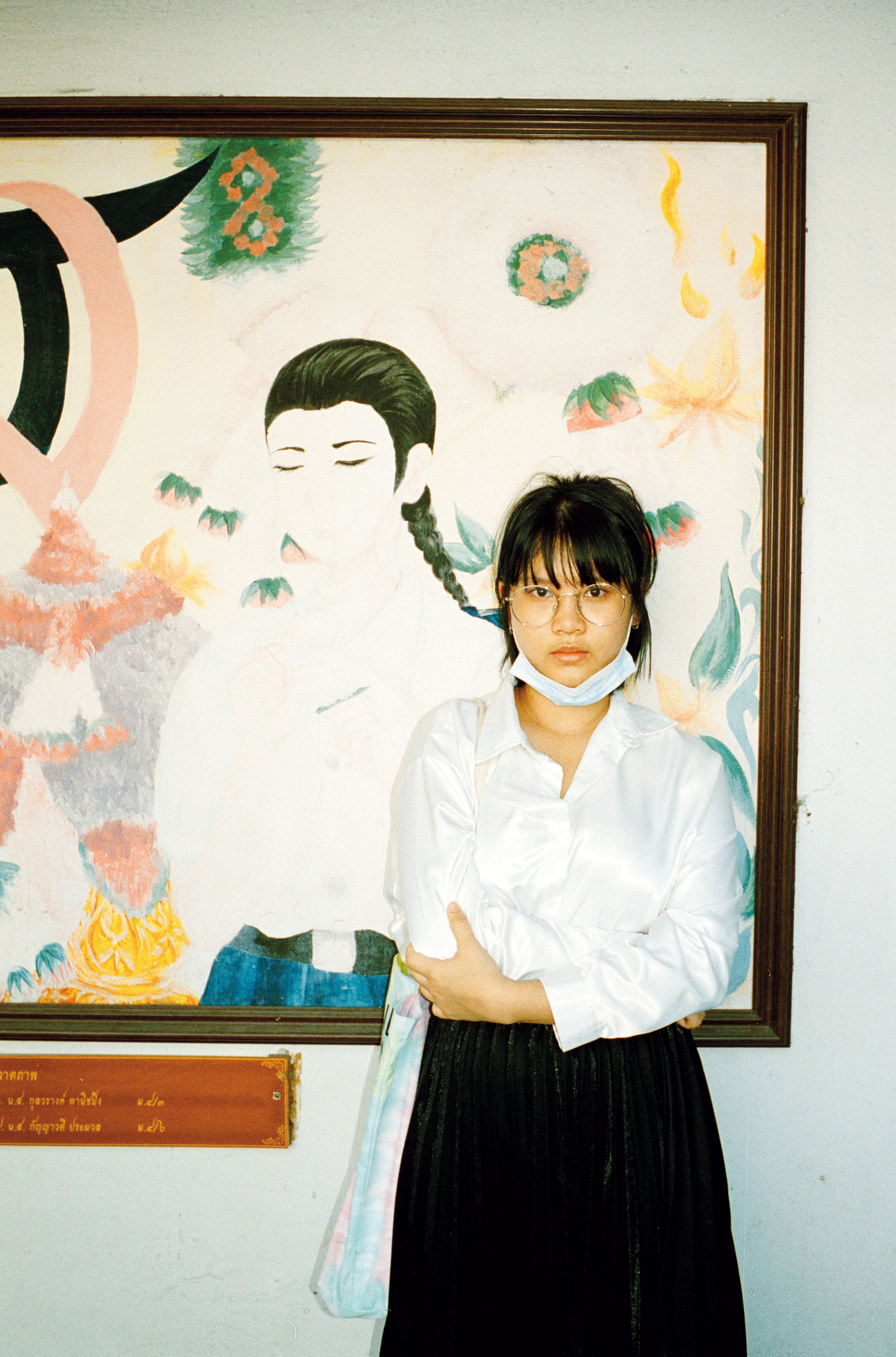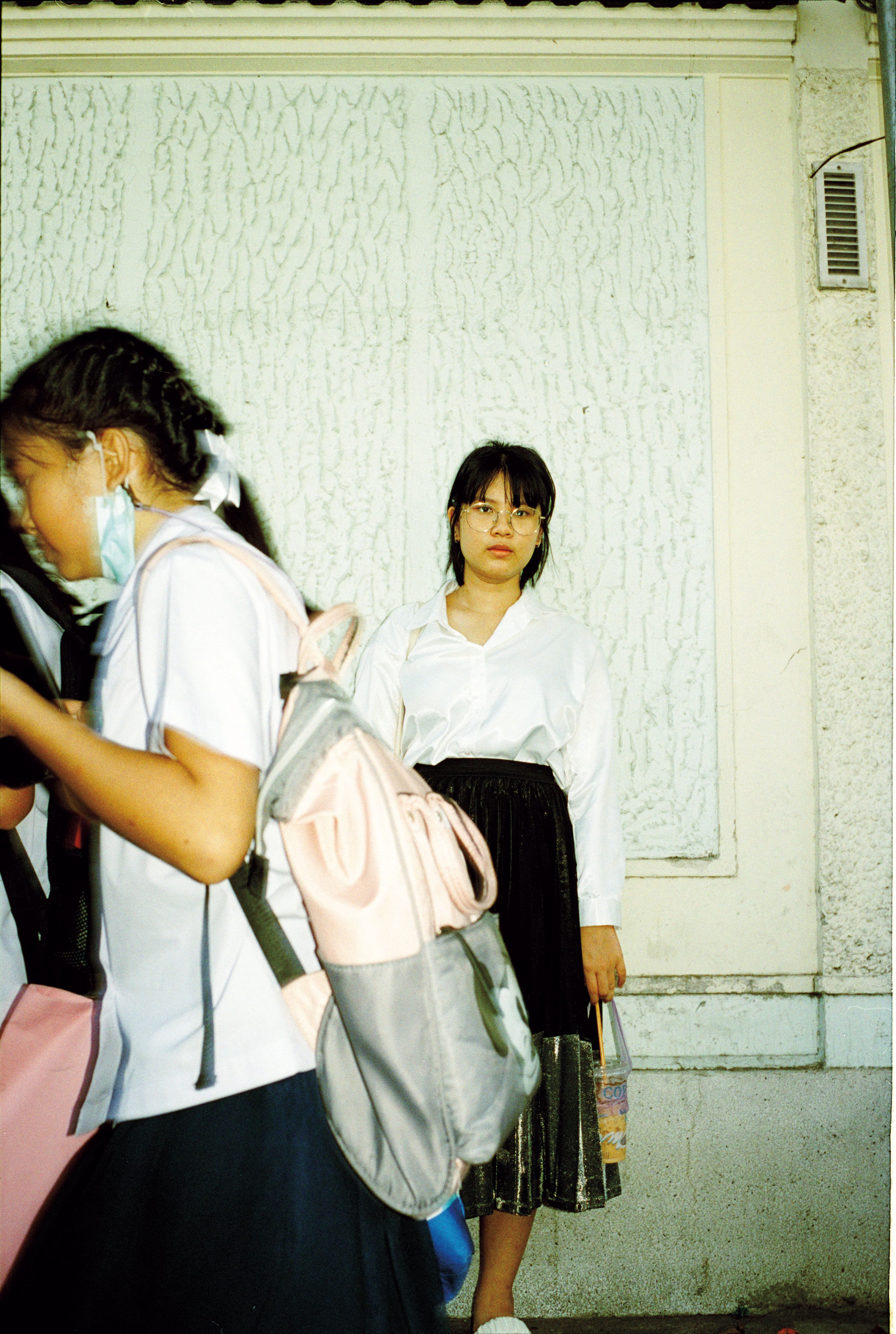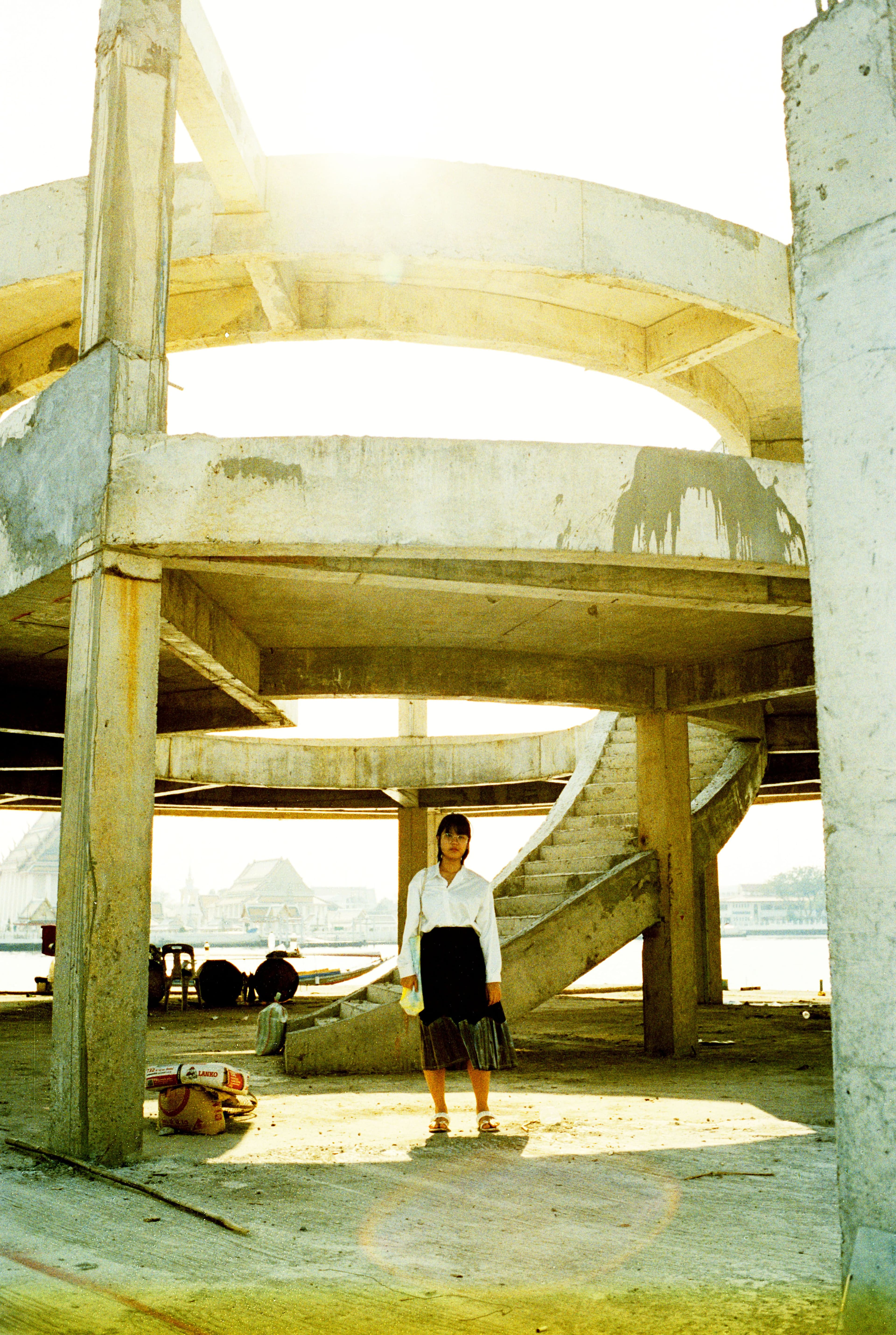
Generation Next: Benjamaporn “Ploy“ Nivas
Benjamaporn “Ploy“ Nivas is one of the youngest protest leaders Thailand has ever seen—at just seventeen years old, she is still a high school student in eleventh grade—but her choice of battle is nothing less than to reform her country’s society to its core. With her initial focus on the educational system, her first protest took place in May 2020, when she sat outside Bangkok’s Siam BTS Skytrain station, mouth sealed and hands tied, with a pair of scissors in her lap. A sign around her neck said, “This student violates a school rule by wearing her hair long with bangs. You may punish her.“ She got the idea, which took only one day to plan, while eating with friends at a restaurant, brainstorming what they could do to prevent teachers from cutting the students’ hair once school began again.
She sat for about an hour, nervously waiting for people to come cut her hair, but she wasn’t scared—at least not until the police came to drag her away.
In Thailand, students must wear a school uniform and wear their hair in a certain style. For girls, it’s often short and above their earlobes; for boys, you have to be able to see the white of their scalp. The culture of seniority is so deeply rooted in Thailand that it’s quite an unusual thing to see a young person speaking up about a societal issue. When Benjamaporn did just that, it set the internet ablaze, with commenters calling her a “slut“ or a “whore,“ all for wanting to wear her hair long.
But that didn’t stop her. Along with three other friends, she founded a group called Bad Student and continued to work, launching Thailand’s anti-school uniform movement in December 2020. Many schools throughout the country participated, sparking a nationwide conversation about the importance, or lack thereof, of school uniforms.

In just a few months, the team at Bad Student grew from four people to twenty. What really inspired Benjamaporn and her friends was the feeling that they didn’t want to put up anymore with the unfairness in schools, where teachers would use their superiority to oppress the students and force them to obey. Benjamaporn believes that you can show people respect without having to put them down or violate their basic human rights, as Thai teachers often do to their students.
A reverence for seniority is deeply rooted in Thai culture. From birth, younger people are constantly told by older people to respect and always listen to their elders. No matter what young people do or say, even if they have valid reasons, they are always in the wrong if the elderly disagree with them. Young people can never criticize older people on anything. Things have to be done in a certain way, following what the elderly have always done, no questions asked.
In Thailand, the teachers often treat the students with a sense of superiority, forcing the students to sit on the floor when handing in their homework, and never to sit on the same level or stand while teachers are sitting down. The teachers are often seen as doing the students a “favor“ just for doing their job and demand gratitude.

It may seem like Benjamaporn focuses solely on the education system, but she believes that reforming the schools is a necessary step towards achieving real democracy. It will lead to better-educated people who will make better choices, which will then lead to a fairer system where people are aware of their rights. Education is the foundation of everything, and this is just her own way of fighting for democracy and human rights in Thailand. “I’m fighting for a better education system because I want real democracy,“ she explains. “Good education creates good citizens, and good citizens will know what’s right or wrong in order to develop the country further. Good education is the foundation of everything.“
“The youths are those who have to live in this world for twenty to thirty years more, and we want to grow up in a country with a good education system, and good politics,“ she adds. “I myself alone can’t change everything, so everybody has to come out and do this together.“
When asked what kind of future she saw for herself, she answers, “I want to become the President of Thailand.“ Since Thailand’s current leader is the prime minister, to say that she wants to become the president requires nothing less than a complete reformation of the country’s political system.
Read this story and many more in print by preordering our inaugural issue here. See the full Generation Next series here.


As a nonprofit arts and culture publication dedicated to educating, inspiring, and uplifting creatives, Cero Magazine depends on your donations to create stories like these. Please support our work here.






